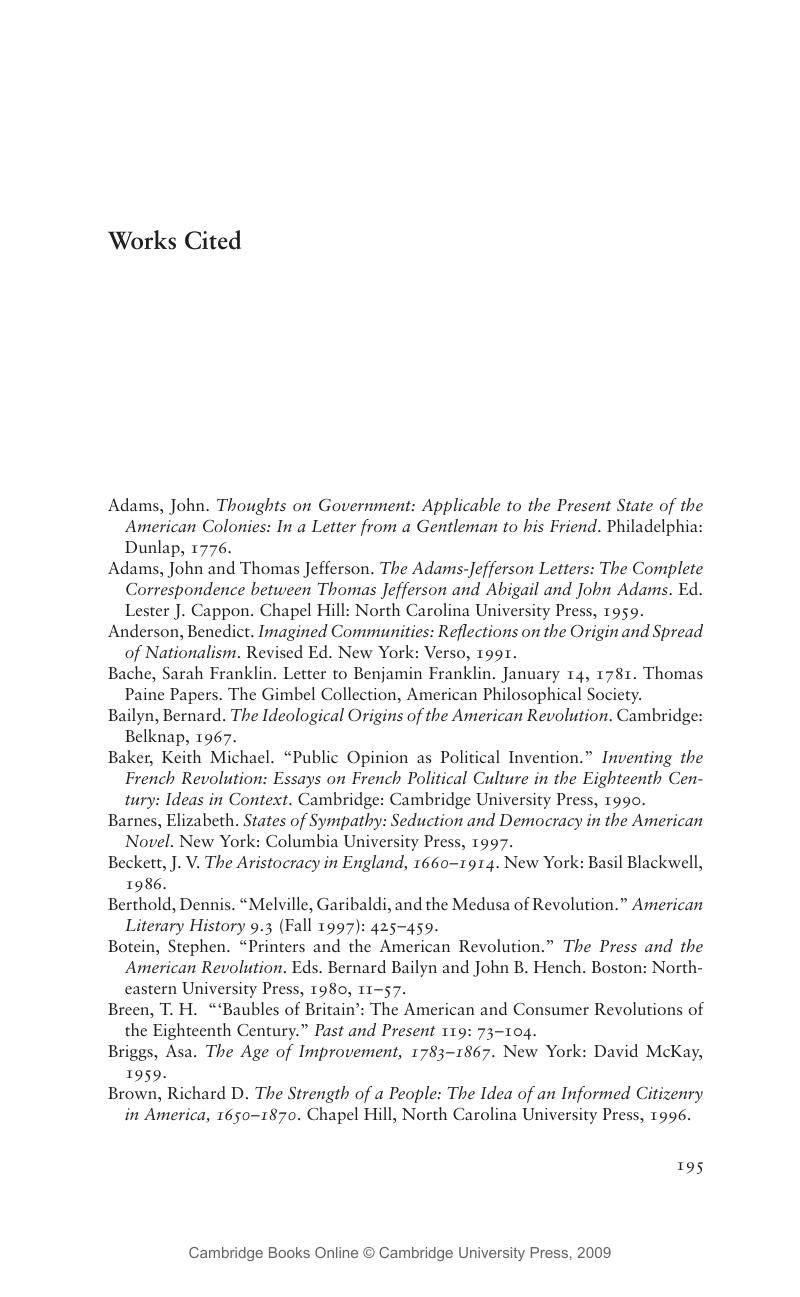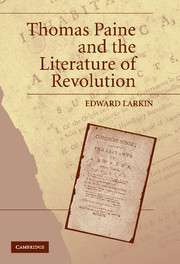Book contents
- Frontmatter
- Contents
- Acknowledgments
- Introduction
- 1 Inventing an American Public: The Pennsylvania Magazine and Revolutionary American Political Discourse
- 2 “Could the Wolf Bleat Like the Lamb”: Paine's Critique of the Early American Public Sphere
- 3 Writing Revolutionary History
- 4 The Science of Revolution: Technological Metaphors and Scientific Methodology in Rights of Man and The Age of Reason
- 5 “Strong Friends and Violent Enemies”: The Historical Construction of Thomas Paine through the Nineteenth Century
- Epilogue: Paine and Nineteenth-Century American Literary History
- Works Cited
- Index
- References
Works Cited
Published online by Cambridge University Press: 25 July 2009
- Frontmatter
- Contents
- Acknowledgments
- Introduction
- 1 Inventing an American Public: The Pennsylvania Magazine and Revolutionary American Political Discourse
- 2 “Could the Wolf Bleat Like the Lamb”: Paine's Critique of the Early American Public Sphere
- 3 Writing Revolutionary History
- 4 The Science of Revolution: Technological Metaphors and Scientific Methodology in Rights of Man and The Age of Reason
- 5 “Strong Friends and Violent Enemies”: The Historical Construction of Thomas Paine through the Nineteenth Century
- Epilogue: Paine and Nineteenth-Century American Literary History
- Works Cited
- Index
- References
Summary

- Type
- Chapter
- Information
- Thomas Paine and the Literature of Revolution , pp. 195 - 202Publisher: Cambridge University PressPrint publication year: 2005



